The Best Indoor Drones Of 2022 (New Guide)
The Best Indoor Drones Of 2022 (New Guide)
Looking for the best indoor drone of 2022? Discover the top indoor drone models that are perfect for flying indoors.
An indoor drone is a type of unmanned aerial vehicle designed specifically for use in enclosed spaces. These drones come in various forms, from simple toy drones to advanced professional inspection tools, each tailored for different purposes and environments.
Indoor drones have a wide range of applications, from entertainment and training to industrial inspections. Whether you're a hobbyist, a racer, or a professional, there's an indoor drone that fits your needs.
Here are the best indoor drones on the market today:
- Cheerwing CW10 Mini Drone – indoor toy drone
- Ryze Tech Tello – indoor toy drone
- Force 1 Scoot LED – indoor toy drone
- EMAX TinyHawk II RTF – indoor FPV drone
- DJI FPV – indoor FPV drone
- Flyability's Elios 3 – professional indoor drone
In this article, we’ll explore why you might want to fly a drone indoors, the different types of indoor drones available, and examples of how they’re used in real-world scenarios.
The Best Indoor Drones of 2022
Below is our list of the top indoor drones currently available, complete with detailed specs and features to help you choose the right one for your needs.
Cheerwing CW10 Mini Drone – Indoor Toy Drone
The Cheerwing CW10 Mini is a great choice for beginners who want to fly indoors. It features voice control, allowing users to command the drone with simple voice commands like "take off" and "land." It also includes Gravity Induction technology, which lets you control the drone without touching your phone screen.
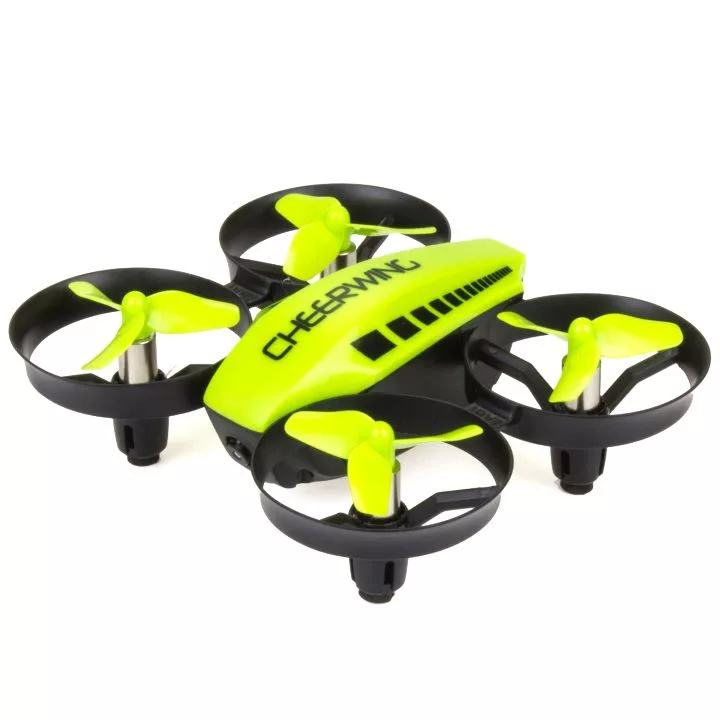
- Max Flight Time – 18 minutes
- Weight – 0.22 pounds (98.5 grams)
- Voice Control – Control the drone with voice commands
- Type – Affordable toy drone
Learn more about the Cheerwing CW10 Mini Drone.
Ryze Tech Tello – Indoor Toy Drone
The Tello is one of the most popular indoor toy drones available. Unlike many other toy drones, it comes with a decent camera, making it ideal for learning how to capture aerial photos and videos. It uses DJI flight technology and an Intel processor, giving it reliable performance and smooth control.
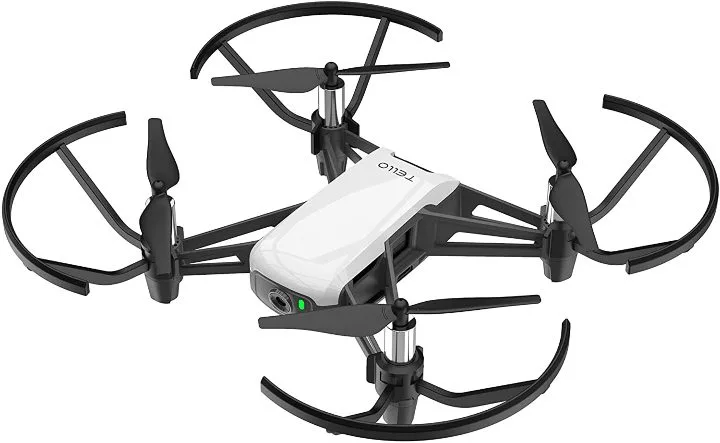
- Max Flight Time – 13 minutes
- Weight – 0.5 pounds (225 grams)
- Camera – 5MP, 720p video
- Type – High-quality toy drone
Learn more about the Ryze Tech Tello.
Force 1 Scoot LED – Indoor Toy Drone
The Force 1 Scoot LED is a fun and safe option for kids and beginners. One of its standout features is the ability to control it using hand gestures, making it easy and intuitive to fly. It also comes with a protective cage, ensuring safety during learning sessions.
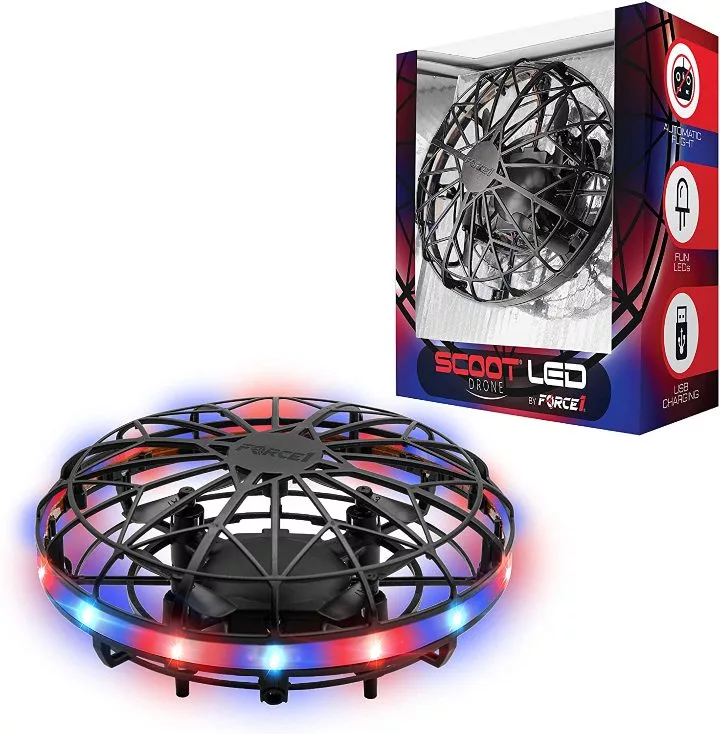
- Max Flight Time – 4 minutes
- Weight – 0.18 pounds (80 grams)
- Camera – 5MP, 720p video
- Type – Affordable toy drone
Learn more about the Force 1 Scoot LED.
EMAX TinyHawk II – Indoor FPV Drone
The EMAX TinyHawk II is one of the best indoor FPV drones for beginners. It’s small, durable, and equipped with an analog video system that provides a clear live feed for FPV goggles. Its speed and agility make it a great choice for those interested in FPV racing or just exploring indoor flying.
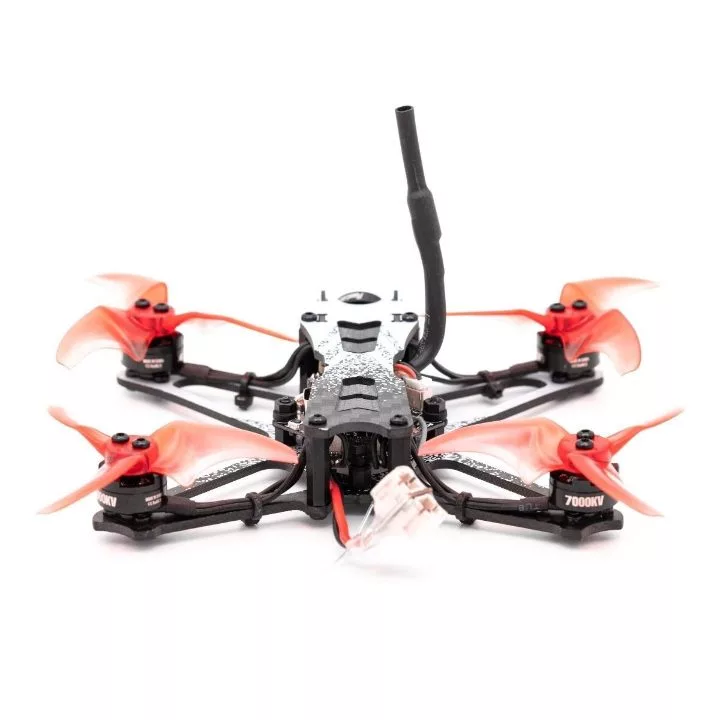
- Max Flight Time – 4 minutes
- Weight – 0.07 pounds (31 grams) + battery
- Max Speed – 50 mph (31 km/h)
- Type – High-quality indoor FPV drone
Learn more about the EMAX TinyHawk II.
DJI FPV – Indoor FPV Drone
The DJI FPV is a powerful hybrid FPV drone that can be used for both racing and cinematography. It offers excellent performance, with a 4K camera and fast acceleration, making it a solid choice for indoor FPV flying. While more expensive than the TinyHawk, it's user-friendly and highly capable for those new to FPV.
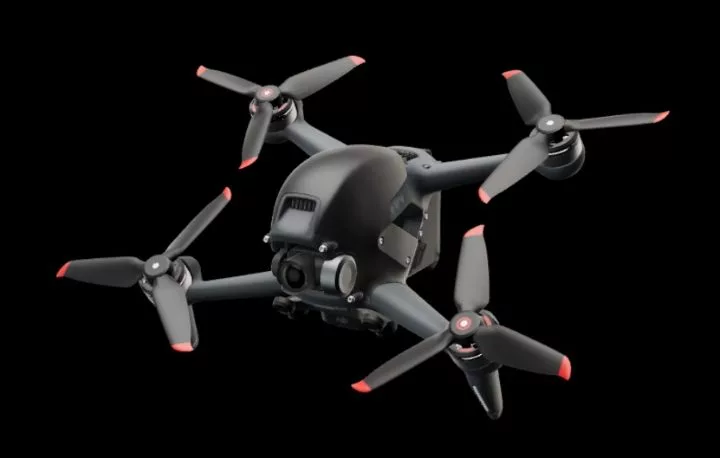
- Max Flight Time – 20 minutes
- Weight – 1.8 pounds (795 grams)
- Max Speed – 0–62 mph (100 km/h) in 2 seconds
- Camera – 4K/60fps, 150° FOV
- Type – High-quality indoor FPV drone
Learn more about the DJI FPV.
Flyability's Elios 3 – Professional Indoor Drone
The Elios 3 is a cutting-edge professional indoor drone designed for industrial inspections. It features a protective cage, high-resolution 4K camera, LiDAR sensor, and advanced lighting for challenging indoor environments. It's ideal for inspecting hard-to-reach areas such as boilers, chimneys, and power plants.

- Max Flight Time – 12 minutes
- Weight – 3.2 pounds (1,450 grams)
- Camera – 4K, 1/2.3" CMOS sensor
- LiDAR – Real-time 3D mapping
- Type – High-quality professional indoor drone
- Inspection Features – GPS-free stabilization, distance lock, full HD
- Lighting – 10,000 lumens, dustproof and oblique lighting
Learn more about the Elios 3.
Can You Fly a Drone Indoors?
If you're wondering whether it's possible to fly a drone inside, the answer is yes—but only if the drone is designed for indoor use. Not all drones are suitable for indoor flying, so it's important to check the manufacturer's specifications.
Look for terms like “indoor†or “inside†in the product description. If the drone is lightweight, has propeller guards, and is designed for confined spaces, it's likely safe to fly indoors. For example, microdrones like the Snaptain SP350 are built for indoor use and won't cause damage if they crash.
On the other hand, larger drones like the DJI Mavic 2 Pro are not ideal for indoor flying due to their size and lack of collision tolerance. They’re better suited for open outdoor environments.
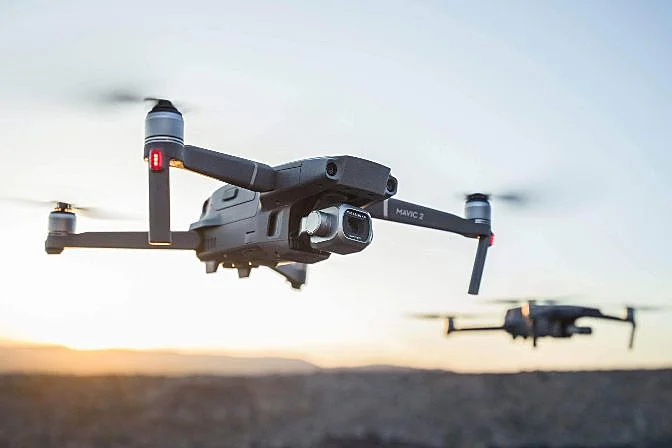 The DJI Mavic 2 Pro
The DJI Mavic 2 Pro
So, while some drones are perfectly safe for indoor flying, others should be reserved for outdoor use. Always consider the environment and the drone’s design before taking it inside.
Why Fly a Drone Indoors?
There are many reasons to fly a drone indoors, including entertainment, practice, racing, and professional work. Each purpose requires a different type of drone.
- For Fun – Toy drones are ideal for casual flying and entertainment.
- For Practice – Toy drones or modified commercial drones can be used to learn how to fly.
- For Racing – FPV racing drones are built for speed and agility.
- For Work – Professional drones are essential for inspections, data collection, and 3D modeling in industrial settings.
Is It Legal to Fly a Drone Indoors?
In most countries, it's legal to fly a drone indoors, especially when the drone is designed for indoor use. In the U.S., for example, the FAA doesn’t regulate indoor flights, meaning you don’t need special permits for flying inside your home or a controlled indoor space.
The Three Types of Indoor Drones
Now that you understand the reasons for flying indoors, let’s take a closer look at the three main categories of indoor drones:
- Toy Indoor Drones
- FPV Racing Indoor Drones
- Professional Indoor Drones
1. Toy Indoor Drones
Toy indoor drones are lightweight, affordable, and safe for indoor use. They often have short flight times and basic or no cameras. Ideal for kids and beginners, these drones are designed to be fun and easy to handle.
- Lightweight (under 1 pound)
- Short flight time (5–15 minutes)
- No or low-quality camera
- Inexpensive (under $100)
- Safety-focused with propeller guards
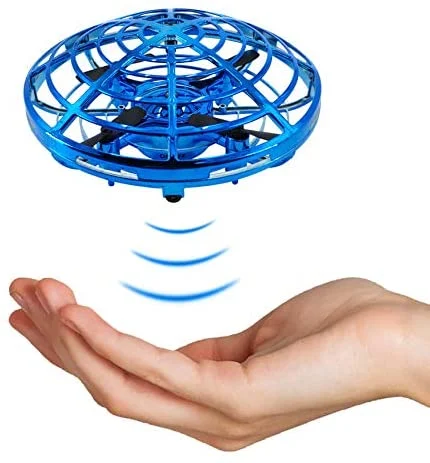 An Example of a Toy Indoor Drone
An Example of a Toy Indoor Drone
2. FPV Racing Indoor Drones
FPV racing drones are designed for speed and agility, offering a first-person view experience through goggles or screens. They are typically used in large indoor race tracks and are not recommended for flying in homes due to their high speeds and potential for collisions.
- FPV capability (first-person view)
- Fast and agile
- Not ideal for home use
- Safety options available but not guaranteed
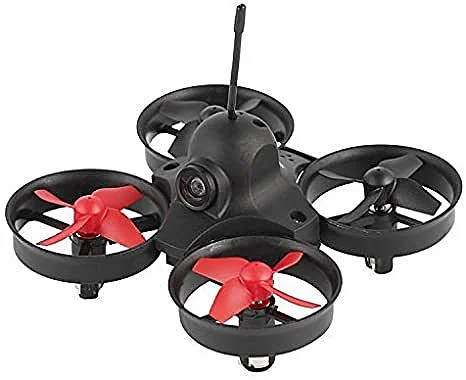
 An Example of an FPV Racing Indoor Drone
An Example of an FPV Racing Indoor Drone
3. Professional Indoor Drones
Professional indoor drones are used for critical tasks like industrial inspections, data collection, and 3D mapping. They are built to withstand collisions and operate in tight, hazardous spaces. These drones are essential in industries like oil and gas, mining, and power generation.
- Equipped with cages for protection
- High-end cameras for quality visual data
- Optional sensors for specialized tasks
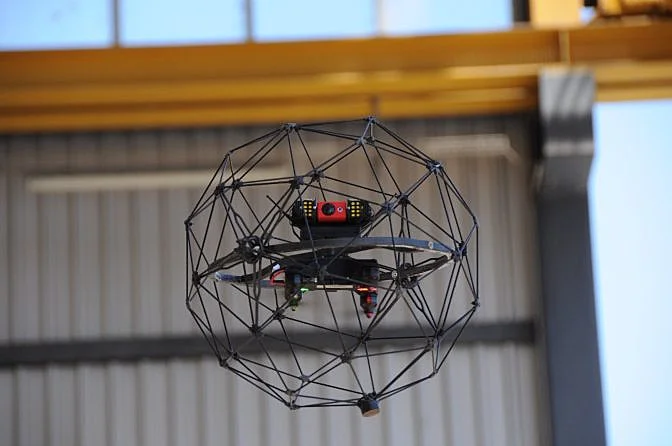 The Elios 1 Professional Indoor Drone in Action
The Elios 1 Professional Indoor Drone in Action
Two Categories of Drone Cages
Professional indoor drones typically come with built-in cages, which are designed to protect both the drone and its surroundings. There are two types of cages:
1. Add-On Cages – These are separate attachments for consumer drones not originally designed for indoor use. They may not provide the same level of durability or safety as built-in cages.
2. Built-In Cages – Designed from the ground up for indoor operations, these cages allow the drone to sustain collisions and continue flying. Examples include the Elios 1, Elios 2, and Elios 3.
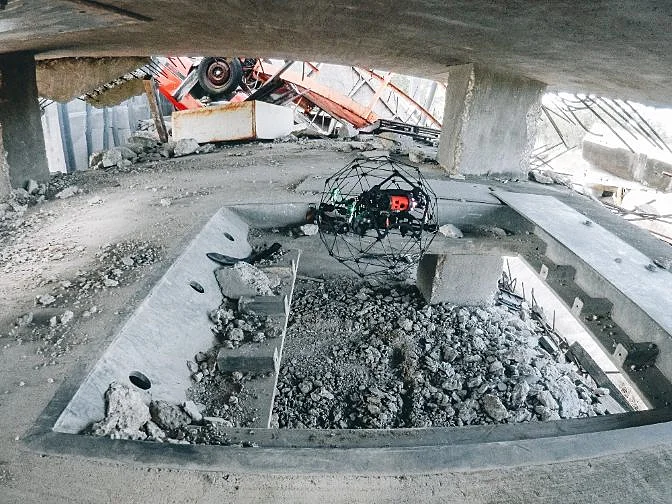 The Elios 2 Uses a Built-In Cage Design
The Elios 2 Uses a Built-In Cage Design
These built-in designs improve the drone’s longevity and the quality of the data it collects, making them ideal for professional use.
The Benefits of Professional Indoor Drones
Companies around the world are seeing significant benefits from using professional indoor drones, especially in industrial settings. Here are three key advantages:
1. Safety – Using a drone instead of a person in dangerous or confined spaces reduces risk and protects workers.
2. Cost Savings & Reduced Downtime – Drones eliminate the need for scaffolding and reduce downtime during inspections, saving companies money.
3. Access – Drones can reach areas that are otherwise inaccessible, collecting high-quality visual data for analysis and decision-making.
Want to see a professional indoor drone in action? Watch this video of the Elios 2 inspecting a mine:
Lixin Outdoor Product Co., Ltd is OEM & ODM manufacturer of inflatable products in the mainland of China with more 17 years of manufacturing experience. products ranges are Inflatable Toys, inflatable pools, inflatable Pool Floats, towable tubes, air furniture and Promotional Items etc. total have more than 1500 employees (4 factories) related to PVC inflatable products.
Operated under ISO 9001:2015 management system, We had passed factory Audit by Walmart, Taret, Disney ect, also passed all necessary certificates and testing such as ICTI, BSCI, SEMTA,Target FA, NBC Universal, FCCA, SGS, CVS Security, GSV, Disney FAMA ect. We have our own PVC raw materials manufacturing company, all the PVC we produced are compliance with European EN71, American ASTM standard and NON PHTHALATE (6P) standard.
blow up chair, inflatable sofa bed, blow up furniture, inflatable lounge chair, blow up sofa bed
Lixin Outdoor Product Co., Ltd , https://www.pdinflatable.com